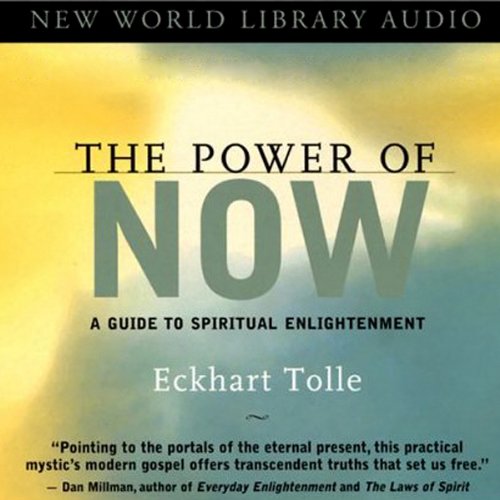Discover the best lessons and inspiring quotes from The Power of Now by Eckhart Tolle to help you live fully in the present and find inner peace.

“Acknowledging the good that you already have in your life is the foundation for all abundance.” —Eckhart Tolle
Though the path may seem challenging, Eckhart Tolle presents his teachings in simple, accessible language using a question-and-answer format. His words are gentle markers pointing the way forward. Along the journey, profound truths are revealed: you are not your mind, psychological pain is avoidable, and true power comes from surrendering to the present moment. When you fully accept what is and remain rooted in the Now, you open yourself to life’s deepest transformation.
“Some changes look negative on the surface but you will soon realize that space is being created in your life for something new to emerge.” —Eckhart Tolle
Top Life Lessons and Quotes from The Power of Now
Here are powerful insights and quotes from The Power of Now that can guide you toward clarity, peace, and inner liberation.
[1]. Life Exists in the Present Moment
Tolle reframes our entire understanding of life—not as a timeline of past, present, and future, but as a series of uninterrupted present moments. This reminds us that now is all we ever truly have. Making the most of it is key to living fully.
[2]. Pain Comes from Resistance
Like the Stoics, Tolle teaches that pain stems from resisting what we cannot change. Regret and worry arise from clinging to the unchangeable. Letting go frees us from unnecessary suffering.
[3]. Observe Without Judging
You can overcome anxiety by simply observing your thoughts without criticism. Awareness alone weakens fear’s grip. Notice your thoughts, accept them, and let them pass.
[4]. Presence Brings Depth
Whatever you're doing, give it your full attention. When you resist the moment, you disconnect from its richness. Embracing what is leads to a deeper experience of life.
[5]. Train the Mind to Stay Present
Accept your thoughts, but don’t let your mind wander endlessly. Train yourself to bring attention back to the moment—this is how you free yourself from habitual thinking.
[6]. Acceptance is Empowerment, Not Defeat
Accepting a situation doesn’t mean giving up. It means stopping the mental resistance and freeing your energy to either embrace or change it without emotional suffering.
[7]. Focus on the Positive
As you learn to stay present, redirect your attention to positive aspects of your current experience. Over time, your mind will start anticipating good rather than fearing bad.
[8]. Complaining Blocks Peace
Tolle views complaining as wasted energy. It disrupts acceptance and anchors you in negativity. Adapt and respond, rather than react and lament.
[9]. Letting the Past Dominate Hurts the Future
When you dwell on past pain, you cloud your ability to live fully and make healthy choices. The past should be acknowledged, not relived.
[10]. You Are Not Your Mind
Tolle reminds us that we are not our thoughts. At our core, we are conscious beings—free from the limitations of the thinking mind. This awareness is the doorway to true freedom.
[11]. Ego Is a Mental Construct
The ego is not your real identity. It’s the mind’s attempt to define itself through external things—roles, possessions, or labels. Your true self exists beyond all of that.
[12]. All Spiritual Paths Point to the Same Truth
Tolle believes all spiritual teachings come from one source, wearing different names and forms throughout history. They all point to liberation from the mind and awakening to the Now.
[13]. Enlightenment Is Rising Above the Mind
True awakening happens when you no longer identify with your thoughts. This is why people seek altered states—they temporarily escape the mind’s noise and taste pure being.
[14]. Enlightenment Is Pure Openness
When awakened, you love without condition and accept others as they are. This is the highest form of connection and a true foundation for deep human relationships.
[15]. Joy Emerges from Stillness
Lasting happiness is born from presence. When you silence the mental chatter and exist in the now, you touch the calm, pure joy of your true self—a joy that doesn’t depend on circumstances.

















